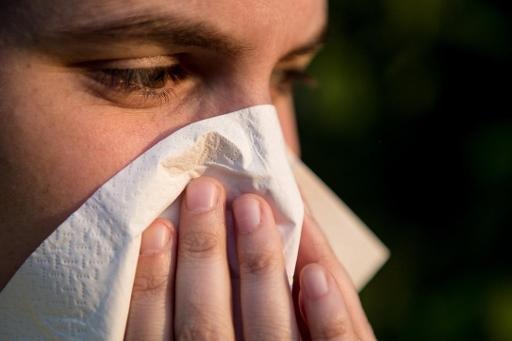This year's hay fever season has started with the first pollen in 2022 coming from alder and hazel, meaning people who are sensitive to their pollen are at risk of developing allergic symptoms.
All measuring stations run by Sciensano's national aerobiology monitoring network AirAllergy — two in Flanders, two in Wallonia and one in Brussels — have detected the pollen from these plants, especially those emitted by hazels.
As weather conditions change, pollen levels are likely to increase. For example, heavy rain is currently helping keep the pollen concentrations relatively low, but they may once again rise if the climate becomes drier.
"We are entering a phase where the concentration of alder and hazel pollen can increase rapidly, up to a thousand times. If it stays dry for a few days, the pollen grains that were previously trapped in the catkins can disperse massively in the air," Ann Packeu, Head of Mycology and Aerobiology at Sciensano, said.
She explained that the highest concentrations were reported in Brussels, where 154 grains/m³ were measured on Sunday 13 February.
More severe symptoms
Every year, the various pollen waves follow a more or less regular pattern. The AirAllergy calendar depicts what pollen can be expected during what month.
So far, the season for the alder and hazel pollen is comparable to previous years. Last year, the peak in concentrations was reached at the end of February. Overall, the amount of pollen emitted by alder and hazel seems to be increasing in the long term, according to Packeu.
"This phenomenon, which has also been observed at many other aerobic stations around the world, is linked to the gradual increase in temperature. If this trend continues in Belgium, we can expect a further increase in the number of allergy sufferers in our population and an increase in the severity of the symptoms."
Overall, people who are allergic to pollen tend to have watery and red eyes, sneezing fits, a loss of sense of taste and smell, but can also experience symptoms such as a runny nose, cough or shortness of breath (in case of asthma), which could easily be mistaken for a cold, flu or coronavirus infection.
"Fever and body aches should be given special attention as they might be caused by viral infection. It is recommended to call your general practitioner in case of doubt," Sciensano stressed.

